Animal-based protein sources offer numerous benefits for your health. They are considered complete proteins, meaning they provide all the essential amino acids your body needs. These proteins are easily digestible and have a high biological value, which means they are efficiently utilized by your body. Animal-based proteins also contain important nutrients like vitamins, minerals, and omega-3 fatty acids. Including animal-based proteins in your diet can help support muscle growth, improve satiety, and contribute to overall health and well-being.
Comparison of Common Animal-Based Protein Sources
There are various animal-based protein sources available, each with its unique characteristics. Some basic comparisons are listed below:
1. Chicken: Chicken is a lean protein source that is low in fat and calories. It is rich in essential amino acids and provides important nutrients like vitamin B12, selenium, and phosphorus.

2. Beef: Beef is a good source of high-quality protein and is rich in essential nutrients like iron, zinc, and vitamin B12. One must opt for lean cuts of beef to reduce saturated fat intake.
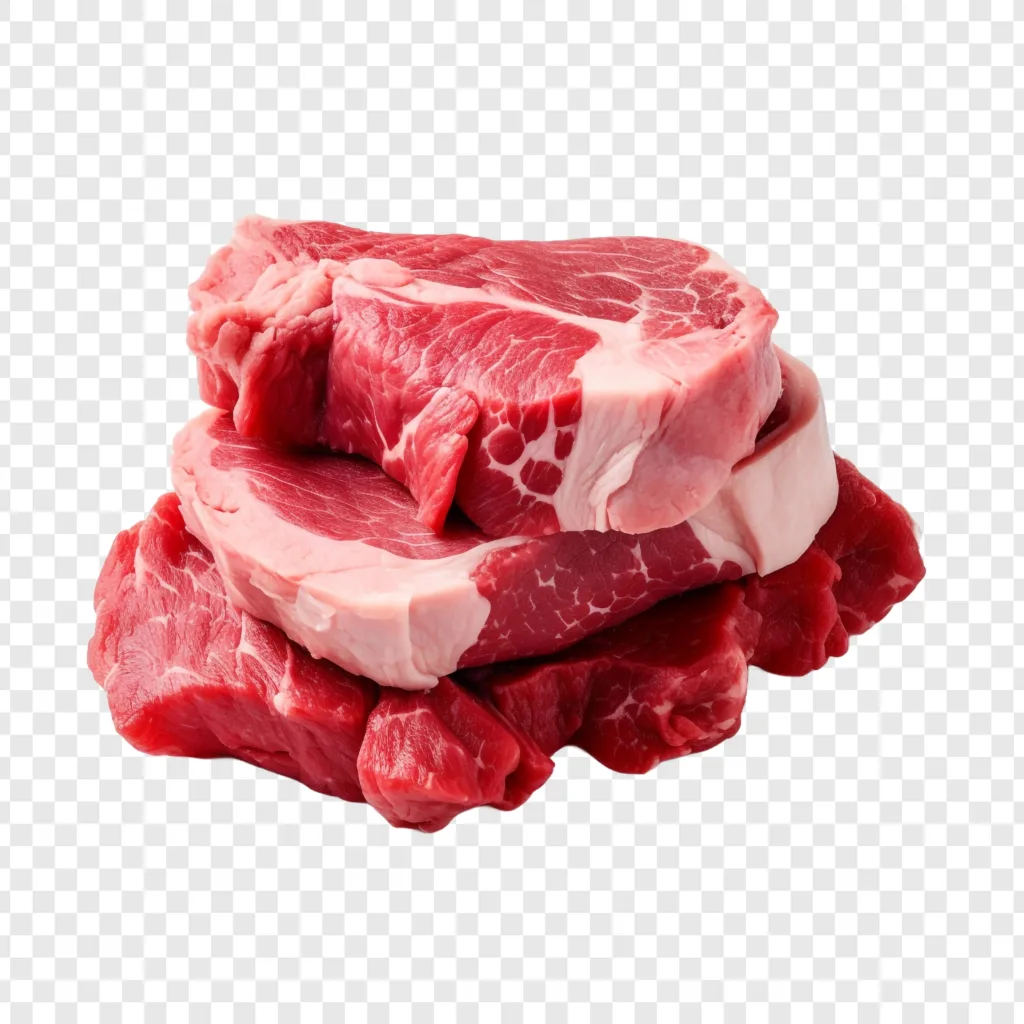
3. Fish: Fish, such as salmon, tuna, and trout, are excellent sources of protein and are also rich in heart-healthy omega-3 fatty acids. They provide essential nutrients like vitamin D and selenium.
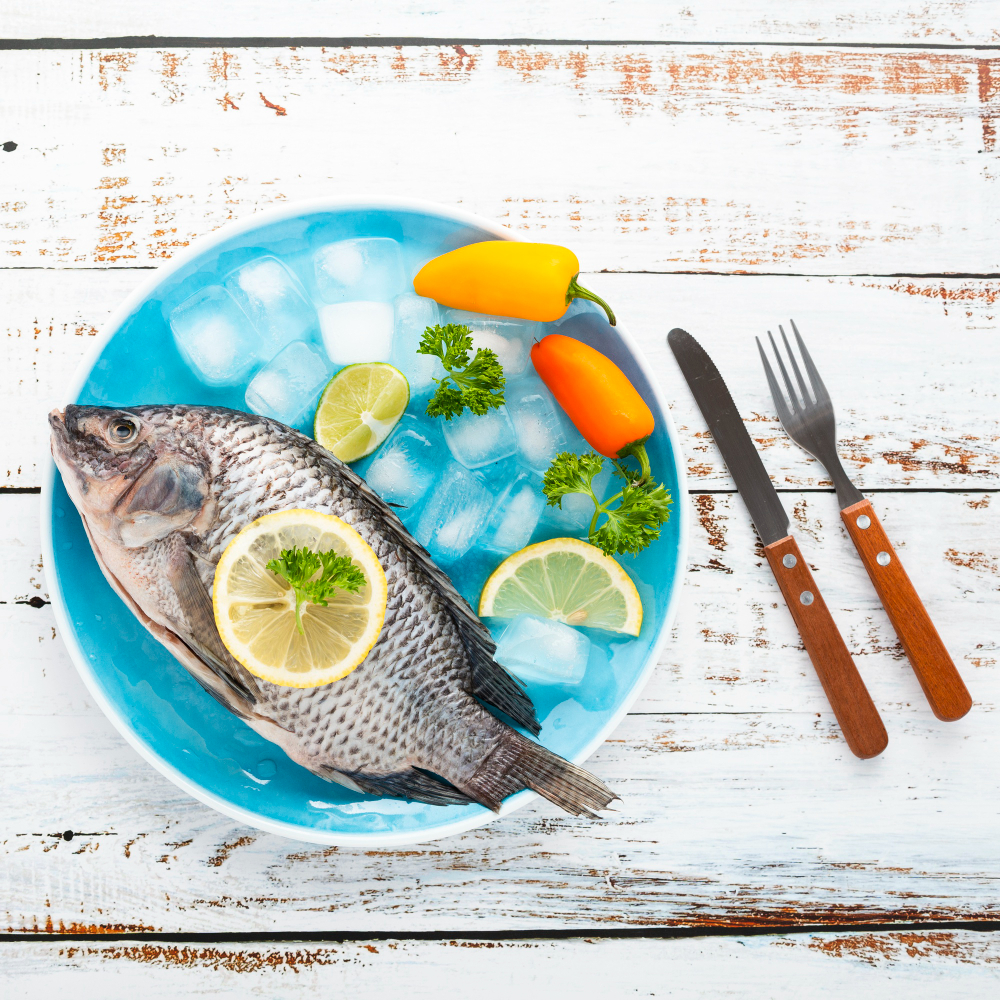
4. Eggs: Eggs are a versatile protein source that contains all the essential amino acids. They are also rich in vitamins, minerals, and antioxidants. The inclusion of eggs in daily routine diet is highly rewarding for health.

5. Dairy products: Dairy products like milk, yogurt, and cheese are excellent sources of protein. They also provide important nutrients like calcium, vitamin D, and vitamin B12. Opt for low-fat or non-fat options to minimize saturated fat intake.
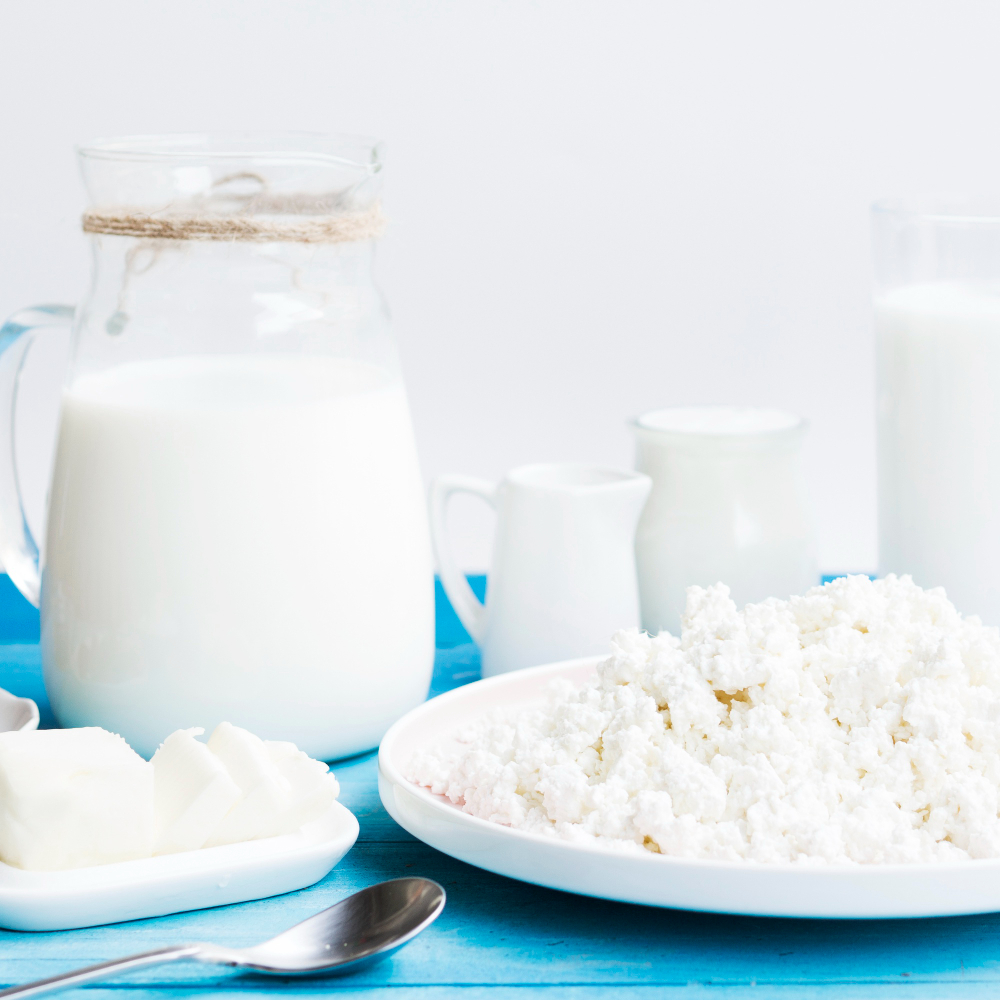
6. Pork: Pork is a good source of protein and provides important nutrients like vitamin B6, niacin, and selenium. Choose lean cuts of pork to reduce saturated fat intake.
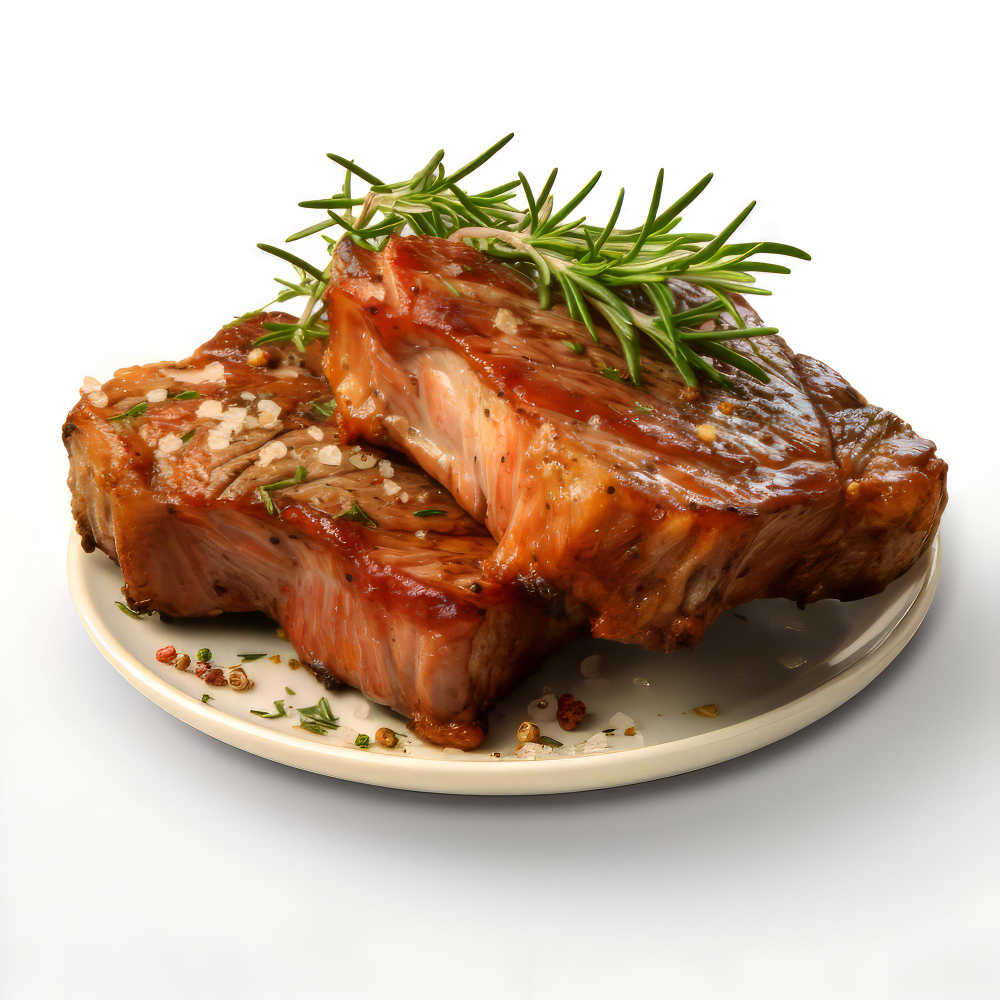
It’s important to consider your individual dietary needs, preferences, and any specific health conditions when choosing animal-based protein sources.
Nutritional Profile of Different Animal Proteins
Different animal proteins vary in their nutritional profiles. Here are some examples:
1. Chicken: Chicken is low in fat and calories, making it a lean protein option. It is a good source of essential amino acids, vitamin B12, selenium, and phosphorus.
Protein content: Every 100 gm of Chicken provides 32.8 g of protein
2. Beef: Beef is rich in protein and provides important nutrients like iron, zinc, and vitamin B12. However, it can be higher in saturated fat, so it’s important to choose lean cuts.
Protein content: Every 100 gm of Beef provides 26.4 g of protein
3. Fish: Fish is a great source of protein and heart-healthy omega-3 fatty acids. They are also good sources of vitamin D and selenium.
Protein content: Every 100 gm of Fish(all types) provides 19.2 g of protein
4. Eggs: Eggs are a nutrient-dense protein source that contains all the essential amino acids. They are also rich in vitamins, minerals, and antioxidants.
Protein content: Every 100 gm of Eggs provides 13 g of protein
5. Dairy products: Dairy products are rich in protein and provide important nutrients like calcium, vitamin D, and vitamin B12. Opt for low-fat or non-fat options to minimize saturated fat intake.
Protein content: Every 100 gm of Dairy product provides 3.5-4 g of protein
6. Pork: Pork is a good source of protein and provides important nutrients like vitamin B6, niacin, and selenium.
Protein content: Every 100 gm of Pork provides 22.2 g of protein
Each animal protein source has its nutritional benefits, so incorporating a variety of them into your diet can help ensure you get a wide range of nutrients.
Cooking and Preparation Methods
The cooking and preparation methods can impact the nutritional profile and taste of animal-based protein sources. Here are some tips:
1. Grilling: Grilling is a popular method for cooking animal proteins like chicken, beef, and fish. It can enhance the flavor and create a delicious charred crust. However, be mindful of charring or overcooking, as it can produce potentially harmful compounds.
2. Baking: Baking is a healthier cooking method that can help retain the nutrients in animal proteins. It is suitable for cooking eggs, fish, and poultry. Use herbs, spices, or marinades to add flavor without adding excessive calories.
3. Roasting: Roasting is a great way to cook larger cuts of beef, pork, or game meats. It creates a crispy exterior while keeping the meat tender and juicy. Adding vegetables to the roasting pan can enhance the overall flavor and provide additional nutrients.
4. Boiling: Boiling is a simple cooking method suitable for eggs and certain cuts of meat. However, boiling can cause some nutrients to leach into the cooking liquid. Consider using the cooking liquid in sauces or soups to retain the nutrients.
5. Steaming: Steaming is a gentle cooking method that helps preserve the natural flavors and nutrients of animal proteins. It is suitable for fish, poultry, and eggs. Steamed proteins can be paired with vegetables or grains for a well-balanced meal.
Remember to handle animal-based proteins safely and cook them to the appropriate internal temperature to ensure food safety. Experiment with different cooking methods to find your preferred way of preparing animal proteins.
Frequently Asked Questions:
What are sources of animal-based proteins?
– Chicken
– Beef
– Eggs
– Fish
– Pork
– Dairy products
What are the main type of nutrients in chicken?
Essential amino acids, vitamin B12, selenium, and phosphorus.
How much protein in an egg?
Every 100 gm of Eggs provides 13 g of protein. An egg on average consists of 6-7gm of protein. They are also rich in vitamins, minerals, and antioxidants.
How much protein in chicken?
Every 100 gm of Chicken provides 32.8 g of protein. It also consists of essential amino acids, vitamin B12, selenium, and phosphorus.
How much protein in dairy products?
Every 100 gm of Dairy product provides 3.5-4 g of protein.It also provides important nutrients like calcium, vitamin D, and vitamin B12.
How much protein in pork?
Every 100 gm of Pork provides 22.2 g of protein. It also provides important nutrients like vitamin B6, niacin, and selenium.
How much protein in fish?
Every 100 gm of Fish(all types) provides 19.2 g of protein. It provides heart-healthy omega-3 fatty acids, vitamin D and selenium.

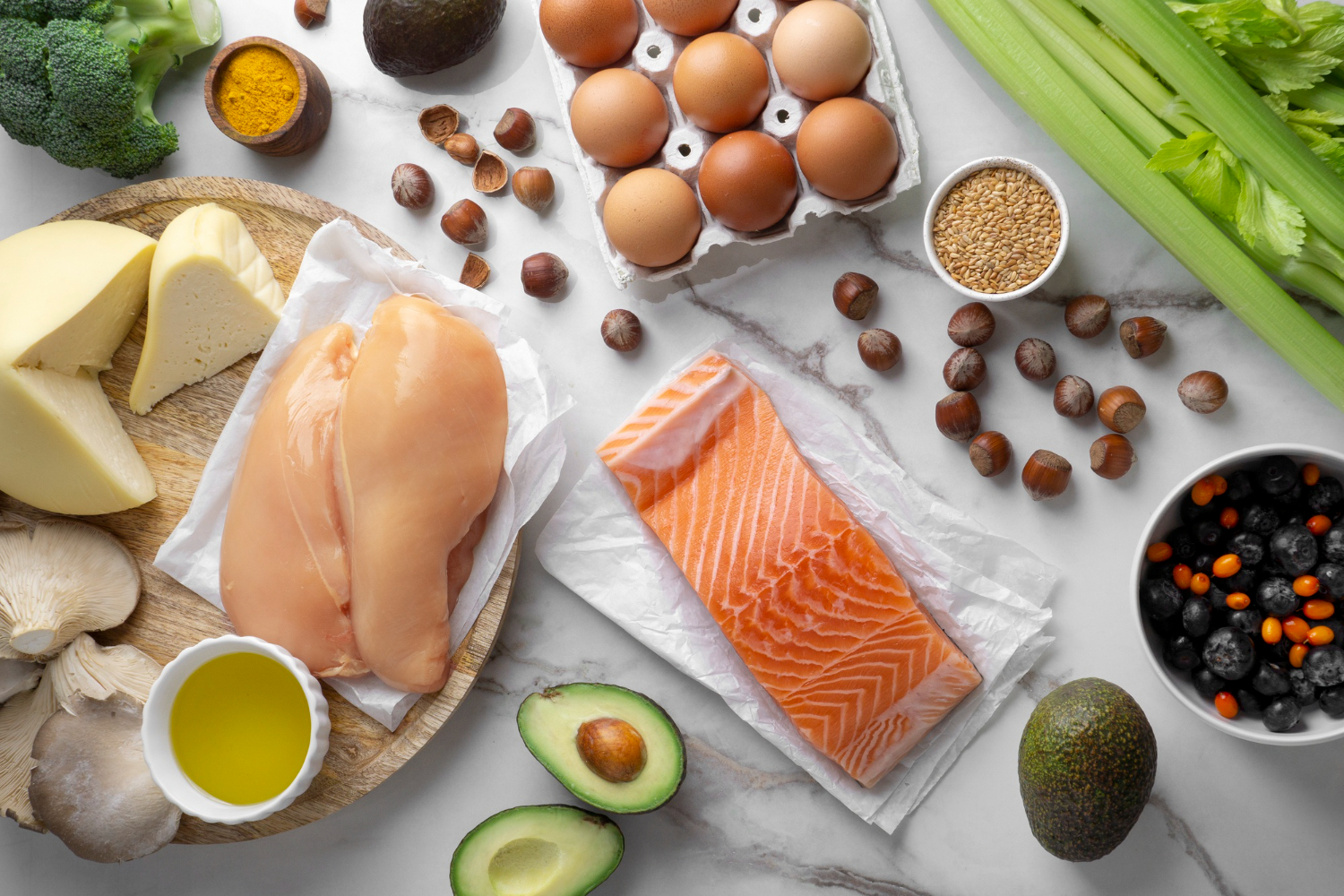
This was so easy to read! Thanks for the tips.